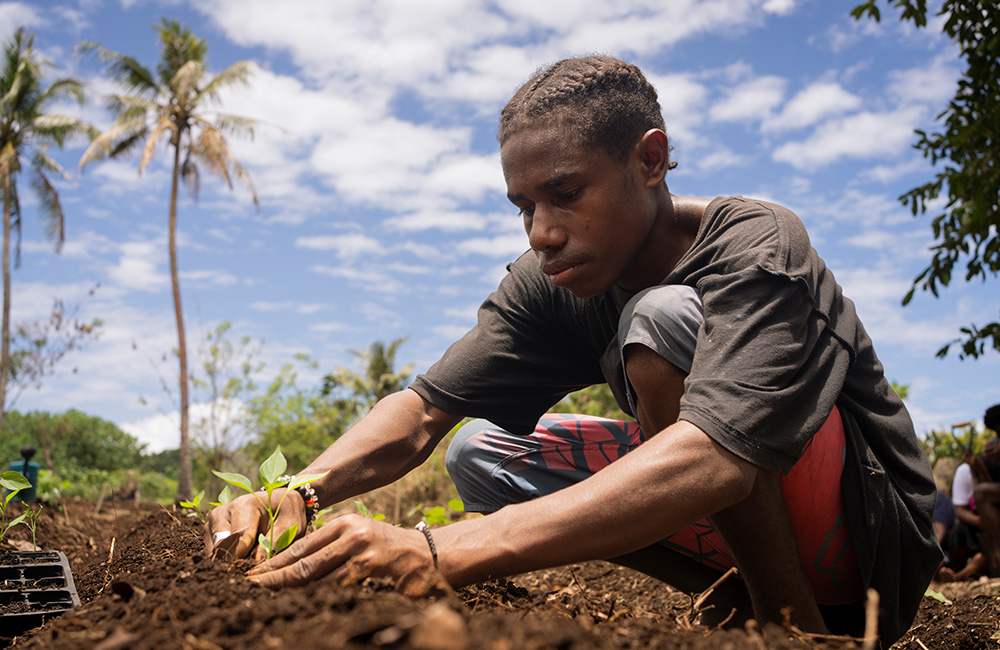Maiten’s training has helped him become a leader in his community
Learning new ways to protect the environment and have a reliable food supply is a big issue in Vanuatu. As the climate crisis continues to worsen, 18-year-old Maiten has seen homes and crops blown away by increasingly intense cyclones. In their aftermath, he and his community have faced dangerous food shortages.
“I see food gardens severely damaged,” says Maiten. “Food gardens flourished in the past. Now with cyclones and climate change, the food gardens are not as healthy as before.”
“As a family we ran short of food within a month of the cyclone. When we ate, we ate sparingly … Sometimes I’d go to bed hungry.”
Worries about the future grew, but Maiten didn’t know where to turn to make a change – and because he had to drop out of school in Year 9, he wasn’t sure he’d find a solution.
“My parents could not afford my school fees,” he says. “I was sad because my friends have a chance at education while I am left in the community. They will see me as a drop-out and I feel bad about that.”
That changed when Save the Children built a climate-resilient nursery in Maiten’s community, and he enrolled in a training course about planting crops that can survive the unpredictable conditions.
“At the nursery, I learnt about using good soil to plant in. I also learned to make a good food garden and how to plant crops. I planted greens. I mixed soil and sand together to make healthy soil to plant in.”
Maiten immediately started applying his newly learnt skills to ensure his community will have a healthy food supply even after a cyclone:
“The first things we planted were cabbage, choy sum, capsicum and cucumber,” he says. “When a cyclone hits, the nursery can assist me with materials and plants so we can help our families. After a cyclone, the nursery can provide cuttings, such as kumala and manioc, to give to a family to plant.”

Maiten plants seeds in his community’s climate-resilient nursery.
Maiten has also been appointed secretary of a group of young people who are being trained to teach others about the importance of social and environmental adaptation in the face of the climate crisis.
“I have the potential to learn a lot in my new role,” he says.
The group has already designed and built a waste management system for their community using baskets made from palm leaves.
“There are three baskets,” Maiten explains. “One for bottles and tins, another for plastics and the other for kitchen scraps. The kitchen scraps will be used to create compost for planting.”